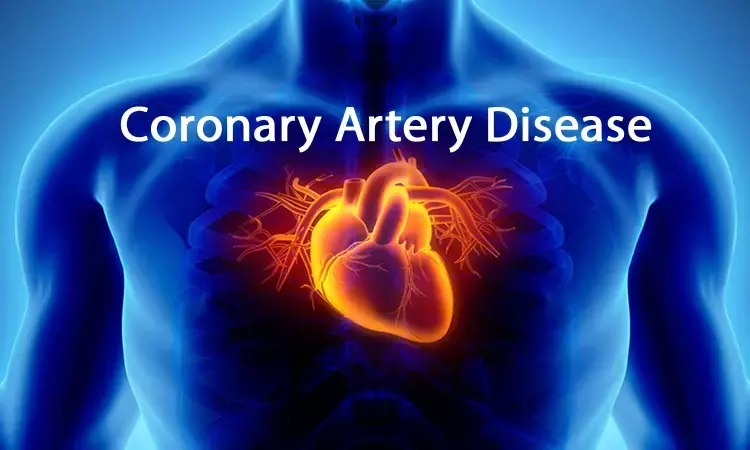- Home
- Medical news & Guidelines
- Anesthesiology
- Cardiology and CTVS
- Critical Care
- Dentistry
- Dermatology
- Diabetes and Endocrinology
- ENT
- Gastroenterology
- Medicine
- Nephrology
- Neurology
- Obstretics-Gynaecology
- Oncology
- Ophthalmology
- Orthopaedics
- Pediatrics-Neonatology
- Psychiatry
- Pulmonology
- Radiology
- Surgery
- Urology
- Laboratory Medicine
- Diet
- Nursing
- Paramedical
- Physiotherapy
- Health news
- Fact Check
- Bone Health Fact Check
- Brain Health Fact Check
- Cancer Related Fact Check
- Child Care Fact Check
- Dental and oral health fact check
- Diabetes and metabolic health fact check
- Diet and Nutrition Fact Check
- Eye and ENT Care Fact Check
- Fitness fact check
- Gut health fact check
- Heart health fact check
- Kidney health fact check
- Medical education fact check
- Men's health fact check
- Respiratory fact check
- Skin and hair care fact check
- Vaccine and Immunization fact check
- Women's health fact check
- AYUSH
- State News
- Andaman and Nicobar Islands
- Andhra Pradesh
- Arunachal Pradesh
- Assam
- Bihar
- Chandigarh
- Chattisgarh
- Dadra and Nagar Haveli
- Daman and Diu
- Delhi
- Goa
- Gujarat
- Haryana
- Himachal Pradesh
- Jammu & Kashmir
- Jharkhand
- Karnataka
- Kerala
- Ladakh
- Lakshadweep
- Madhya Pradesh
- Maharashtra
- Manipur
- Meghalaya
- Mizoram
- Nagaland
- Odisha
- Puducherry
- Punjab
- Rajasthan
- Sikkim
- Tamil Nadu
- Telangana
- Tripura
- Uttar Pradesh
- Uttrakhand
- West Bengal
- Medical Education
- Industry
Poor lipid control linked to premature coronary artery disease, finds study

Mexico: Patients with premature coronary artery disease (CAD) have poor lipid control, suggests a recent study in the journal Nutrition, Metabolism & Cardiovascular Diseases. Factors associated with poor lipid control include obesity, low prescription of high-intensity statins, and low lipid-lowering treatment adherence
"Novel preventive programs and more aggressive pharmacological intervention should be implemented in order to reduce the burden of premature CAD," wrote the authors.
In high-risk patients, lipid goals have become more stringent. No studies, however, have analyzed lipid control defined as the composite achievement of goals in low-density lipoprotein cholesterol (LDL-C), non-high-density lipoprotein cholesterol (Non-HDL-C) and apolipoprotein B-100 (ApoB-100), in patients with premature coronary artery disease (CAD). Martínez-Sánchez Froylan, Department of Endocrinology, Instituto Nacional de Cardiología Ignacio Chávez, Mexico City, Mexico, and colleagues, therefore, aimed to analyze lipid control rates and the associated factors with its poor achievement in patients with premature CAD.
The study involved 1196 CAD patients which was diagnosed before 55 and 65 years old in men and women, respectively. Lipid control rates were analyzed using the American Heart Association/American College of Cardiology (non-strict) and the American Association of Clinical Endocrinologists (strict) criteria. Participants were 54 ± 8 years old, 19.7% were women, and median CAD evolution was 2.4 years.
Key findings of the study include:
- Non-strict and strict lipid control was achieved in 23.0% and 8.9% of the patients, respectively.
- 46.5% and 62.8% of the patients did not achieve any lipid goal using both criteria.
- Sociodemographic data were not different among patients who achieved or not lipid control.
- Treatment adherence<85%, prescription of low- and moderate-intensity statins, and obesity were consistently associated with poor lipid control.
"Lipid control is suboptimal in patients with premature CAD. Low lipid-lowering treatment adherence, low prescription of high-intensity statins, and obesity were independently associated with poor lipid control. Novel preventive programs and more aggressive pharmacological intervention should be implemented in order to reduce the burden of premature CAD," concluded the authors.
The study, "Prevalence of poor lipid control in patients with premature coronary artery disease," is published in the journal Nutrition, Metabolism & Cardiovascular Diseases.
DOI: https://doi.org/10.1016/j.numecd.2020.04.030
Dr Kamal Kant Kohli-MBBS, DTCD- a chest specialist with more than 30 years of practice and a flair for writing clinical articles, Dr Kamal Kant Kohli joined Medical Dialogues as a Chief Editor of Medical News. Besides writing articles, as an editor, he proofreads and verifies all the medical content published on Medical Dialogues including those coming from journals, studies,medical conferences,guidelines etc. Email: drkohli@medicaldialogues.in. Contact no. 011-43720751


